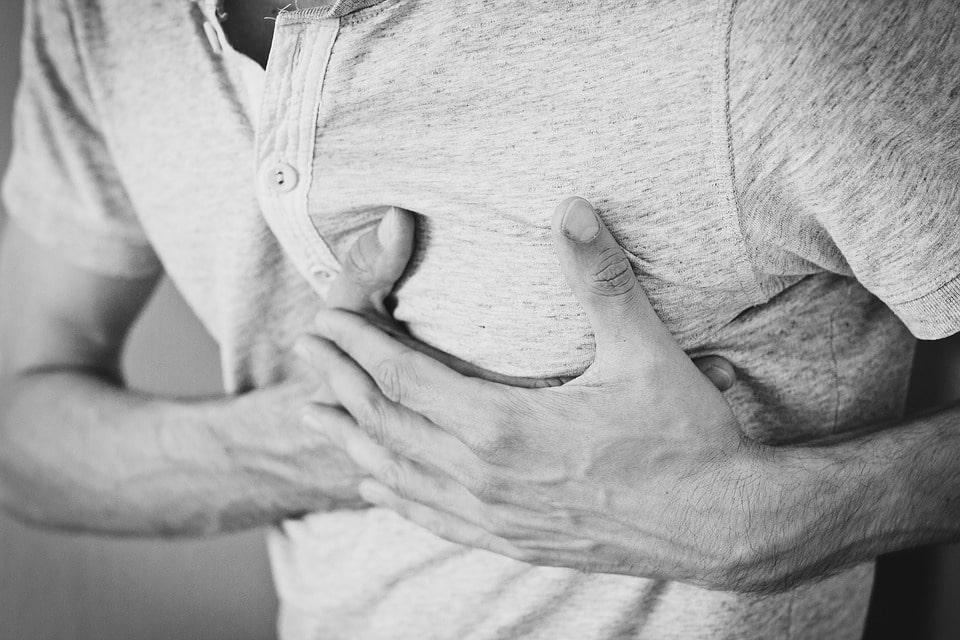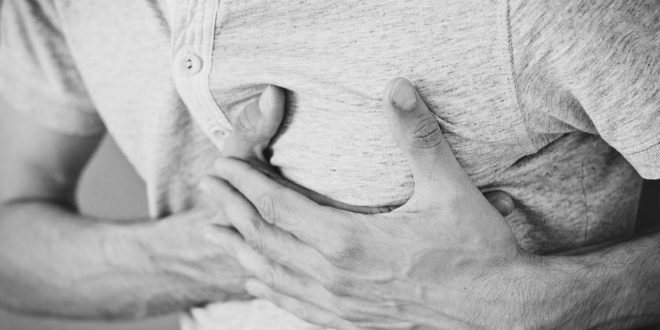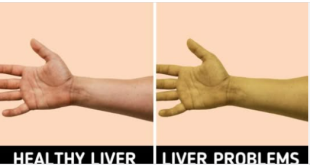Heart attacks, the leading cause of death worldwide, are sadly become quite common in recent years. Our stressful lifestyles and bad eating habits are the cause of them.
You can change several aspects of your lifestyle to safeguard your cardiovascular health. Reduce stress, eat a nutritious diet, and recognize heart failure signs. A month before the heart stops, these symptoms may start to manifest:
Serious health issues can result from a lack of oxygen. It’s crucial to consult a doctor as soon as you notice breathing problems to determine the cause and receive treatment.

Fever, bodily aches, and an overall sensation of being under the weather are some of the cold and flu symptoms. People frequently experience these signs about to have a heart attack.
It’s critical to be aware of both illnesses’ warning signs and symptoms and to get medical attention if you experience any of them.
A heart attack is frequently accompanied by chest tightness. You should visit a doctor as soon as possible if you are experiencing chest pain.
A deficiency in the number of nutrients reaching the muscles might result in heart failure. This might be a result of the arteries narrowing, which would reduce blood flow.
Because of this, the muscles are deprived of the nutrition they require, which may result in heart failure. You must visit a doctor if you’re feeling weak and exhausted.
Inadequate circulation might cause a headache and cold sweats. This is because impaired brain function may result from limited blood supply to the brain.
The main sign of a heart attack is frequent fatigue. You may have a problem with cardiac blood flow if you wake up feeling exhausted after sleeping or relaxing for a while. Early diagnosis and treatment of the symptoms can lower the risk of a heart attack.
A blockage in the arteries that feed blood to the heart is the most frequent reason for a heart attack. The accumulation of fat, cholesterol and other substances in the arteries can lead to plaque formation, which frequently causes this blockage.
A plaque that ruptures may produce a clot that prevents blood flow. Long-term blood flow disruptions can harm or even destroy specific heart muscle tissue.
Although a heart attack’s warning signs and symptoms might differ from person to person, some of the more typical ones are sweat, dizziness, and chest pain.
It’s crucial to seek emergency medical attention as soon as you develop these symptoms. Although a heart attack can be fatal, therapy has advanced significantly in recent years, and with prompt care, there is a strong chance of survival.
A stomach virus can cause pressure in the chest, tightness, soreness, or a squeezing or painful sensation that may spread to the neck, jaw, or back. Other signs may include stomach pain, indigestion, heartburn, or nausea.
If you exhibit any of these signs, you probably have a stomach illness and should consult a doctor. Additionally, you can have trouble breathing or get a cold sweat.
Your risk of having a heart attack increases with the number of symptoms you have. Not every person with a heart attack exhibits the same symptoms or even the same intensity of symptoms.
While some people feel a little discomfort, others are in excruciating pain. Some people have no symptoms at all. Others may experience sudden cardiac arrest as their first symptom.
Even though some heart attacks happen without warning, many patients have warning signs and symptoms hours, days, or even weeks in advance.
The first indication could be persistent chest pressure or pain (angina) triggered by activity and relieved by rest. The temporary reduction in blood flow to the heart is a symptom of angina.
If you believe you have a heart attack, call 911 or your local emergency number as soon as possible.
If you don’t have access to emergency medical care, ask someone to transport you to the closest hospital. Driving yourself puts you and others in danger since your condition could worsen.
During a heart attack, doctors may prescribe nitroglycerin to help with chest pain relief. Another drug that may be recommended to help avoid heart damage is aspirin.
As your doctor or emergency medical personnel recommended, take nitroglycerin and aspirin if you have a heart attack. If you require immediate assistance, call 911.
Call 911 immediately if you see someone unresponsive and believe they have a heart attack. Check that the person is breathing and has a pulse.
Start CPR by pressing hard and quickly on the person’s chest in a rapid rhythm of 100 to 120 compressions per minute if they are not breathing or have no pulse.
Even if you’ve previously had a heart attack, there are a few things you may do to prevent another one. Medication can improve the function of your injured heart and reduce your chance of having another heart attack. Keep taking your medicines as your doctor prescribes, and ask how frequently you should be checked.
It’s a good idea to maintain a healthy weight with a heart-healthy diet, stop smoking, exercise frequently, manage stress, and take care of conditions like high blood pressure, high cholesterol, and diabetes that could lead to a heart attack.






